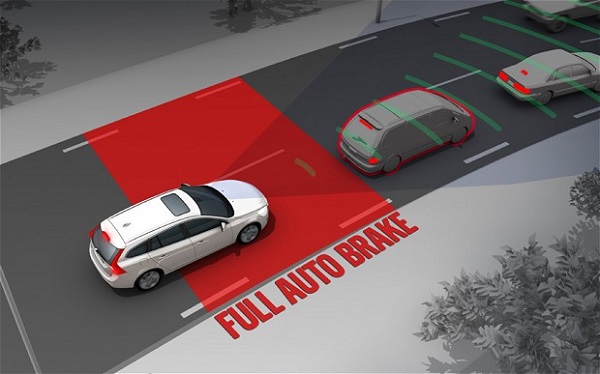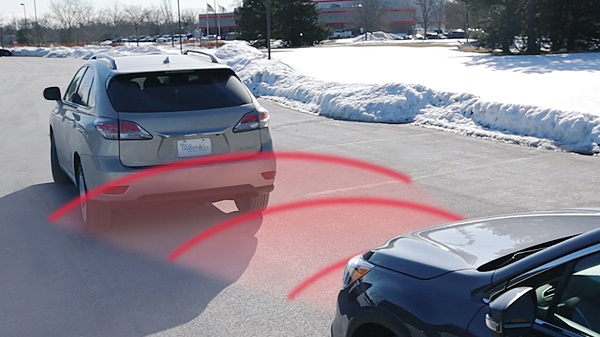In a move to reduce overall traffic deaths and injuries, 10 automakers have promised the US government and a private safety group that they will include automatic emergency braking in all future produced cars.

While the announcement didn’t include a timetable for implementing the change, the automakers expected to incorporate this technology include Audi, BMW, Ford, General Motors, Mazda, Mercedes Benz, Tesla, Toyota, Volkswagen, and Volvo.
All told, that group represents 57% of the US car and light truck market in 2014.
Automatic emergency braking technology uses on-vehicle sensors (radar, cameras, or lasers) to detect imminent crashes, warn the driver of said impact, and if he / she does not react, engage the brakes immediately. It is already available on some cars, but in models like Cadillac, Infiniti, and Lexus, the technology comes as an option that is often bundled together with other features like heated seats and leather interiors; this typically makes the safety feature an expensive add-on.

Reports on the technology estimate that it could prevent, or at least mitigate, an estimated 80% of the auto and commercial truck rear-end collisions that cause nearly 1,700 deaths and 500,000 injuries annually.
“This can't be voluntary,” said Clarence Ditlow, executive director of the Center for Auto Safety, explaining the government’s involvement. “This needs a mandated safety standard with rigorous performance measures that trigger a recall if an automaker doesn't meet them.”
He added that by going through the government rulemaking process, consumer groups will have the opportunity “to raise the hard questions, such as if a type of braking system is capable of stopping a car going 25 mph, then why not 50 mph, which is closer to highway speeds.”
Performance criteria for manufacturers to meet their voluntary commitments will be set by the National Highway Traffic Safety Administration, which regulates automakers, and the Insurance Institute for Auto Safety, an industry group that researches and promotes safety.
The Administration and Institute will also work with the automakers to determine when consumers can expect to see the new braking systems included as standard equipment.
“Today's announcement puts 10 automakers representing more than half of all light duty vehicle sales on the record as committed to making (automatic braking) standard on all their vehicles, and we expect that will accelerate the availability of that technology beyond what could be accomplished through rulemaking that could take several years,” said Gordon Trowbridge, a spokesman for the traffic safety administration.
News of the government’s involvement with the automakers’ promise has not been wholly supported. Safety advocates criticized the effort as a backroom deal that allows automakers to avoid the possibility that the Transportation Department will impose laws requiring they must include the braking systems in cars, and set strict standards for the technology.
On the flip side, the Alliance of Automobile Manufacturers, which represents most large automakers, recently told the AP that it opposes any government requirement that automakers include automatic braking in their vehicles. The group expounded upon this notion by saying it should be up to consumers to decide whether they wish to pay for the safety technology.
The Alliance did not respond to the press’s request for comment on this announcement.
Via phys.org
Advertisement
Learn more about Electronic Products Magazine





